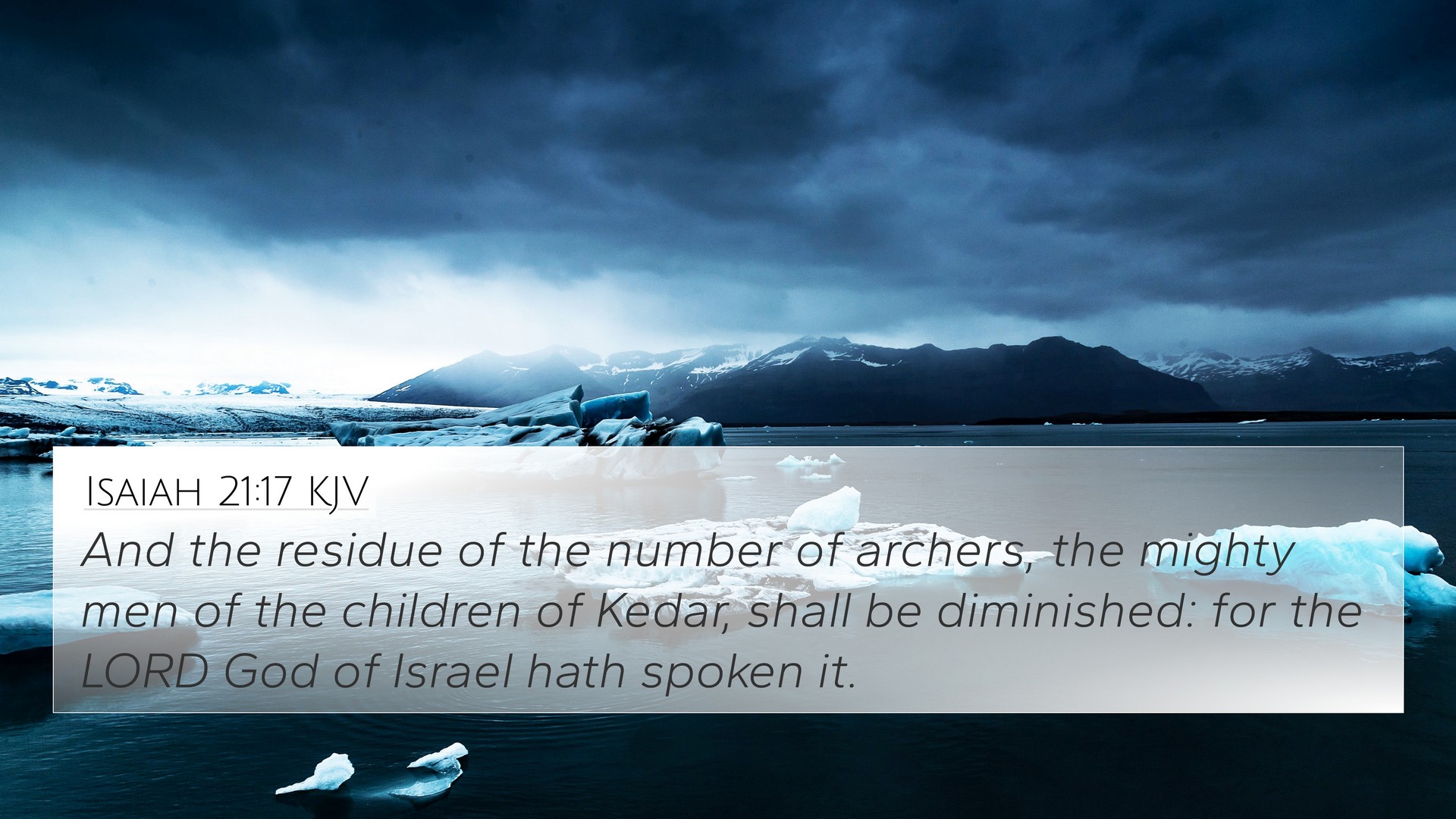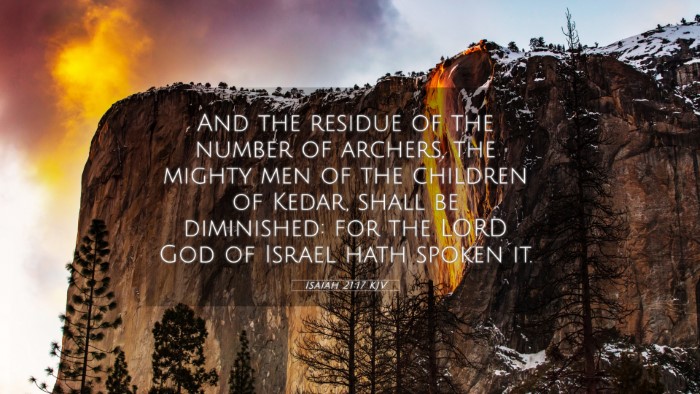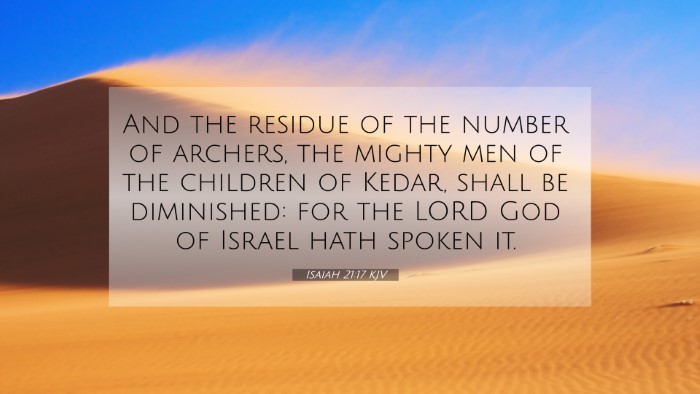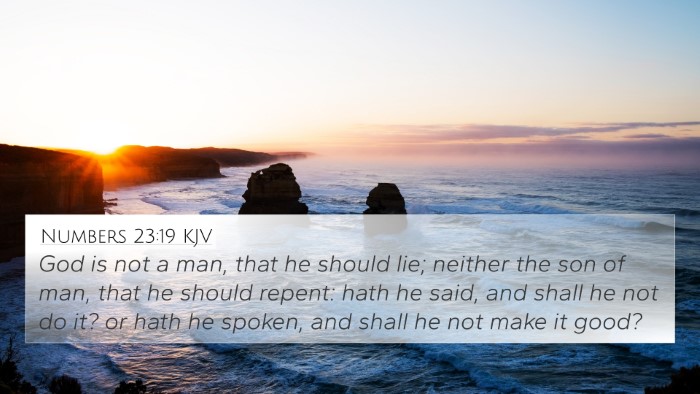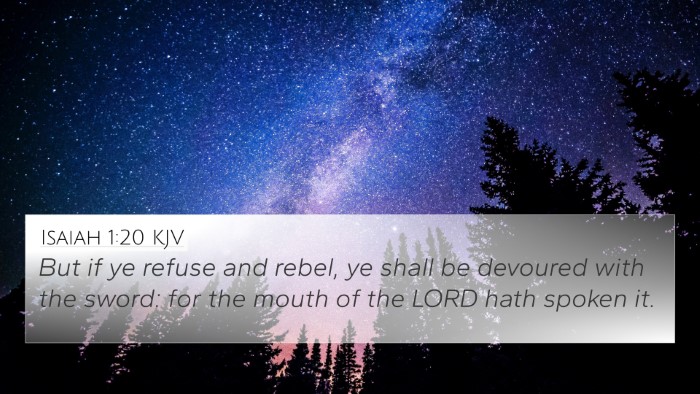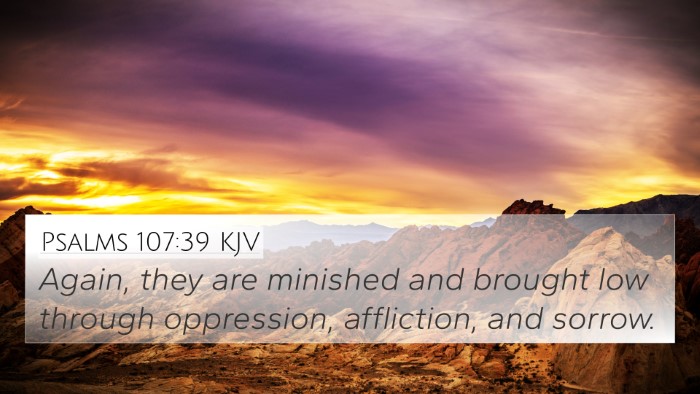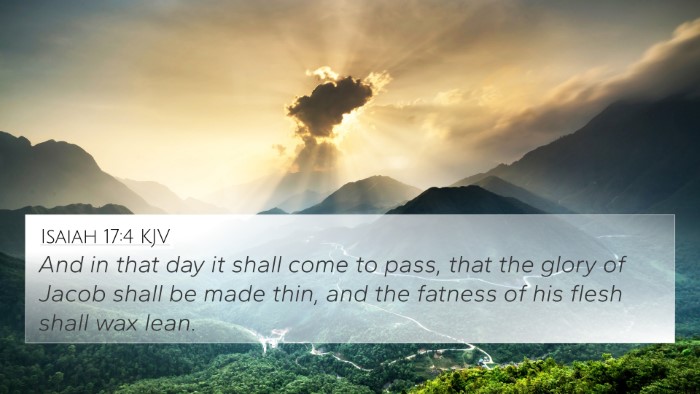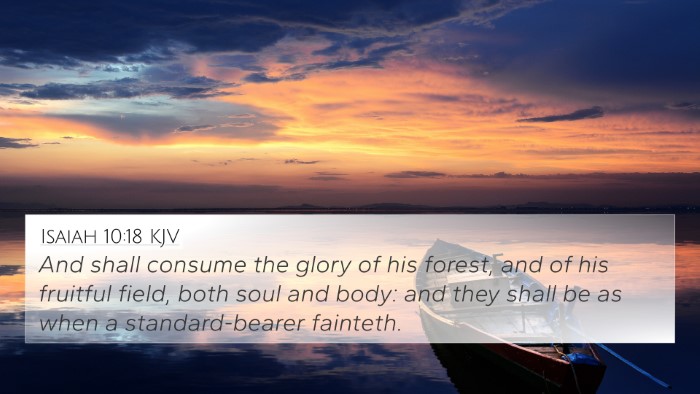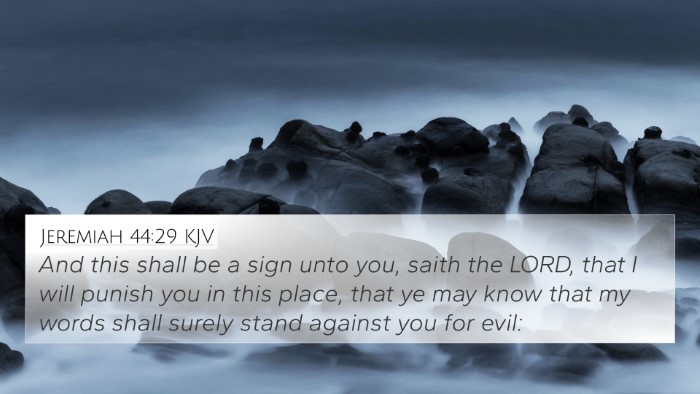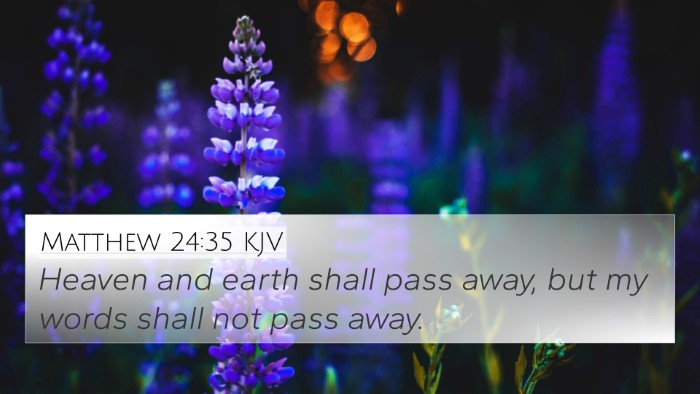Understanding Isaiah 21:17
Isaiah 21:17 states: "And the residue of the number of archers, the mighty men of the children of Kedar, shall be diminished: for the LORD God of Israel hath spoken it."
This verse conveys a prophecy regarding the impending doom of the children of Kedar, a nomadic tribe descended from Ishmael, illustrating God's judgment upon them due to their opposition to Israel.
Commentary Insights
Matthew Henry's Commentary
Matthew Henry discusses the implications of the Kedarites' fate and emphasizes God's sovereignty in their judgment. He notes how the archers and the mighty men will be diminished, signifying the inevitable decline of their power and influence. This serves as a reminder of the futility of opposing God's will.
Albert Barnes' Notes on the Bible
Albert Barnes elaborates on the historical context of Kedar's archers, indicating their skill and strength. He mentions that the prophecy indicates not just a reduction in numbers but a complete remove of their might, as the message from God was certain and unchangeable. Barnes connects this to the larger theme of God's dominion over the nations.
Adam Clarke's Commentary
Adam Clarke provides a detailed analysis of the background, explaining who the children of Kedar were and their role in the ancient Near East. He emphasizes the passage of prophetic judgment as a warning to all nations that disregard God. Clarke notes that the reference to "residue" signifies the total judgment, where none would escape. His analysis brings to light the moral and spiritual implications of the nation’s actions against God's chosen people.
Key Themes and Cross-References
This verse is part of a larger narrative in Isaiah that deals with God's prophetic word concerning various nations and serves as a reminder of His sovereignty and power in the face of human opposition.
Related Bible Verses
- Isaiah 9:8: The Lord sent a word into Jacob, and it hath lighted upon Israel.
- Psalm 135:6: Whatsoever the Lord pleased, that did he in heaven, and in earth, in the seas, and all deep places.
- Isaiah 10:27: And it shall come to pass in that day, that his burden shall be taken away from off thy shoulder, and his yoke from off thy neck, and the yoke shall be destroyed because of the anointing.
- Isaiah 42:13: The Lord shall go forth as a mighty man, he shall stir up jealousy like a man of war.
- Isaiah 49:26: And I will feed them that oppress thee with their own flesh; and they shall be drunken with their own blood, as with sweet wine.
- Jeremiah 49:28-29: Concerning Kedar, and concerning the kingdoms of Hazor, which Nebuchadrezzar king of Babylon shall smite.
- Ezekiel 30:4: And the sword shall come upon Egypt, and great pain shall be in Ethiopia, when the slain shall fall.
- Zephaniah 2:9: Therefore as I live, saith the Lord of hosts, the God of Israel, surely Moab shall be as Sodom, and the children of Ammon as Gomorrah.
Conclusion
Isaiah 21:17 serves not only as a historical prophecy concerning the Kedarites but also as a timeless reminder of God's authority over nations and peoples. The connections found within the scriptures, especially between the prophetic teachings in Isaiah and the historical contexts in other books, underscore the significance of understanding scripture through a lens of inter-Biblical dialogue and thematic cross-referencing.
For those studying the Bible, tools for cross-referencing such as a Bible concordance or a cross-reference guide can aid in identifying connections between verses and enhancing one's understanding of Biblical themes. Engaging in comparative Bible verse analysis can deepen one’s insight into God's overarching narrative and the interconnectedness of scripture.
Additional Study Resources
- Bible Cross-Reference Guide: An essential tool for finding related scriptures.
- Comprehensive Bible Cross-Reference Materials: Resources that allow in-depth study of scripture links across different Testaments.
- Cross-Reference Bible Study Methods: Approaches to understand the Bible by identifying thematic links.
